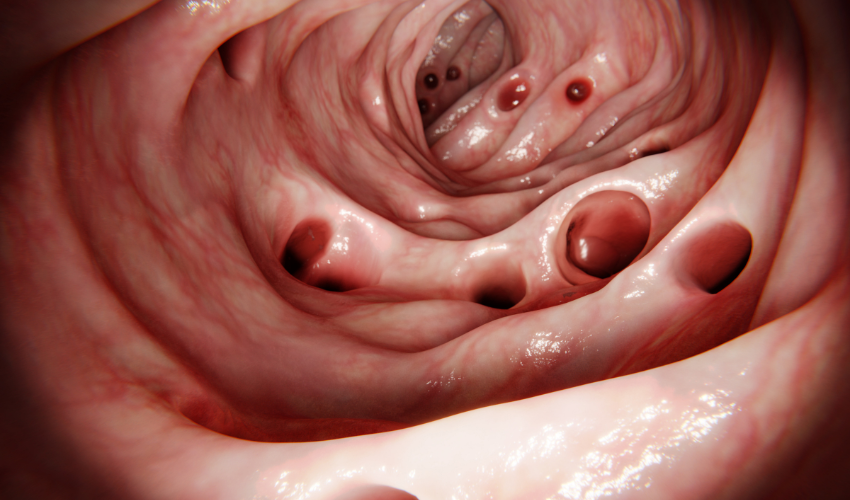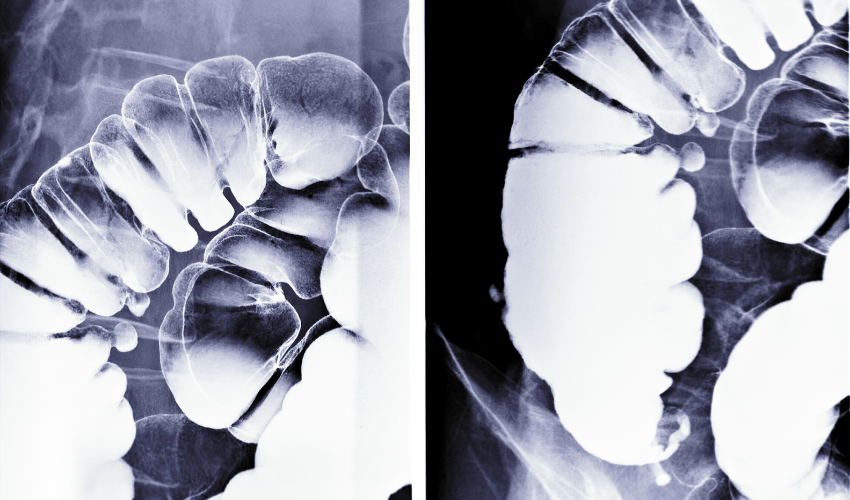Diverticulitis is a condition that occurs when small, bulging pouches (diverticula) in the lining of the digestive system become inflamed or infected. It is a common condition, affecting around 5-10% of the population over the age of 40. While many people with diverticulitis may not experience any symptoms, others may experience discomfort, pain, and other digestive issues. In this article, we will discuss the symptoms of diverticulitis, diagnosis, and treatment options.
Symptoms of Diverticulitis:
The symptoms of diverticulitis can vary from person to person, and some people may not experience any symptoms at all. The most common symptoms of diverticulitis include:
- Abdominal pain: The pain is usually felt in the lower left side of the abdomen, but it can also occur on the right side. The pain may be constant or intermittent and may be accompanied by cramping, bloating, or gas.
- Changes in bowel movements: Diverticulitis can cause changes in bowel habits, such as constipation or diarrhea. Some people may also experience blood in their stools.
- Nausea and vomiting: In severe cases, diverticulitis can cause nausea and vomiting.
- Fever and chills: When the infection spreads, it can cause fever and chills.
Diagnosis of Diverticulitis:
To diagnose diverticulitis, your doctor will likely perform a physical exam and ask about your symptoms. They may also order one or more of the following tests:
- CT scan: This imaging test can help your doctor see the inflamed or infected diverticula.
- Colonoscopy: A colonoscopy can help your doctor see the inside of your colon and check for other digestive issues.
- Blood tests: Blood tests can help your doctor determine if you have an infection or inflammation in your body.
Treatment Options for Diverticulitis:
The treatment options for diverticulitis depend on the severity of the condition. Mild cases may be treated with rest, a clear liquid diet, and antibiotics. In more severe cases, hospitalization may be necessary to receive intravenous antibiotics and fluids. Surgery may also be necessary in some cases, particularly if the condition recurs or if there are complications such as a blockage or abscess.

FAQs:
- Can diverticulitis be prevented?
While it is not always possible to prevent diverticulitis, there are steps you can take to reduce your risk, such as eating a high-fiber diet, drinking plenty of fluids, and exercising regularly. - Is diverticulitis a chronic condition?
Diverticulitis can be a chronic condition for some people, particularly if it recurs frequently or if there are complications. - Can diverticulitis cause other health problems?
In some cases, diverticulitis can lead to complications such as abscesses, blockages, or perforations in the digestive system. - What foods should I avoid if I have diverticulitis?
If you have diverticulitis, you should avoid foods that are difficult to digest, such as nuts, seeds, popcorn, and corn. - Can exercise help prevent diverticulitis?
Yes, exercise can help prevent diverticulitis by promoting healthy digestion and bowel movements. Regular exercise can also help maintain a healthy weight and reduce the risk of other health conditions. - Can a low fiber diet cause diverticulitis?
A low-fiber diet is a known risk factor for diverticulitis, as it can contribute to the formation of diverticula in the lining of the intestine. It is important to eat a diet rich in fiber to help prevent diverticulitis.
Conclusion
Diverticulitis is a common condition that can cause a range of uncomfortable symptoms. If you are experiencing abdominal pain, bloating, constipation, diarrhea, nausea, or vomiting, it is important to speak with your healthcare provider. By understanding the signs and symptoms of diverticulitis, you can take steps to manage the condition and improve your digestive health. Remember to eat a healthy diet rich in fiber, exercise regularly, and seek medical attention if you experience any concerning symptoms.























